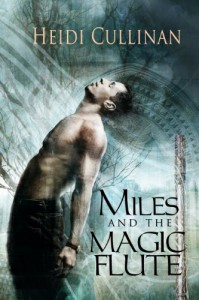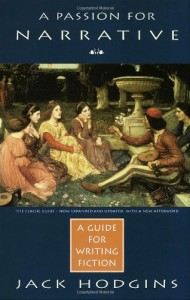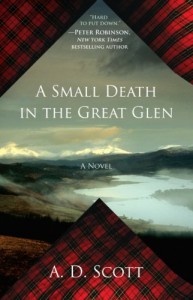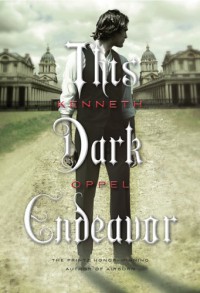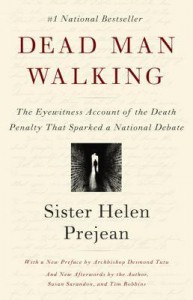Boxes of Paper
I'm a ten-year-veteran of independent bookstores. I love to recommended my favourite titles to all and sundry!
Thrive: The Vegan Nutrition Guide to Optimal Performance in Sports and Life
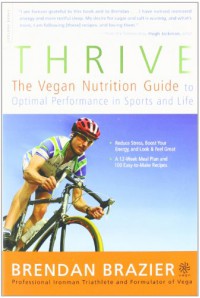 I have Brazier to thank for reminding me of something I already knew. I feel better when I eat the weird-crazy-vegan diet where I cook with coconut oil and drink smoothies made with hemp protein and ground flax seed. Better not just physically, but emotionally. I have Brazier's book to thank for finally pulling myself out of a several-years-long low grade depression. Brazier's philosophy is simple. If you have foods with the same number of calories, but some of them has more minerals and nutrients, which is going to give you more energy and make you feel better? The Thrive diet emphasizes whole foods, an avoidance of (though not a ban on) the sensitivity-causing wheat/gluten, corn, dairy, soy and active yeast, and is heavy on raw foods, though Brazier provides non-raw options for many recipes. Less than two days on the diet and the results were like night and day. Yes, I'll freely admit the taste of the recipes takes some getting used to, but I quickly fell in love with the Creamy Ginger Dressing, even if the hemp oil turns it an odd shade of green. Brazier also points out that the human palate is very habit forming. Easing into the Thrive diet will ease out the cravings for refined sugars, salt and caffeine. My own experience certainly agrees. But the best thing I've taken from this book is a metaphor. Consuming bad foods, like refined sugar or caffeine, is like charging up an "energy credit card". It works for the moment, but when you get that bill at the end of the cycle...So where does my emotional recovery come in? Brazier talks of nutritionally deficient foods as the cause of "nutritional stress". Our bodies spend energy in digesting processed food, but then get reduced-or-no nutritional value from the effort, just the calories. The lack of real nutrition causes our bodies to assume we are in a state close to famine and send out the signal to shut down accordingly. Take away that nutritional-stress and life suddenly looks different. Brazier's book is low on the references scale, which is regrettable. I admit that if I had not already read up on vegan nutrition, I would have much skepticism regarding the claims he puts forward and I know others will feel the same. But since I've experienced the benefits myself when I first went vegan, I can read them knowing I just need to get back on the wheel.
I have Brazier to thank for reminding me of something I already knew. I feel better when I eat the weird-crazy-vegan diet where I cook with coconut oil and drink smoothies made with hemp protein and ground flax seed. Better not just physically, but emotionally. I have Brazier's book to thank for finally pulling myself out of a several-years-long low grade depression. Brazier's philosophy is simple. If you have foods with the same number of calories, but some of them has more minerals and nutrients, which is going to give you more energy and make you feel better? The Thrive diet emphasizes whole foods, an avoidance of (though not a ban on) the sensitivity-causing wheat/gluten, corn, dairy, soy and active yeast, and is heavy on raw foods, though Brazier provides non-raw options for many recipes. Less than two days on the diet and the results were like night and day. Yes, I'll freely admit the taste of the recipes takes some getting used to, but I quickly fell in love with the Creamy Ginger Dressing, even if the hemp oil turns it an odd shade of green. Brazier also points out that the human palate is very habit forming. Easing into the Thrive diet will ease out the cravings for refined sugars, salt and caffeine. My own experience certainly agrees. But the best thing I've taken from this book is a metaphor. Consuming bad foods, like refined sugar or caffeine, is like charging up an "energy credit card". It works for the moment, but when you get that bill at the end of the cycle...So where does my emotional recovery come in? Brazier talks of nutritionally deficient foods as the cause of "nutritional stress". Our bodies spend energy in digesting processed food, but then get reduced-or-no nutritional value from the effort, just the calories. The lack of real nutrition causes our bodies to assume we are in a state close to famine and send out the signal to shut down accordingly. Take away that nutritional-stress and life suddenly looks different. Brazier's book is low on the references scale, which is regrettable. I admit that if I had not already read up on vegan nutrition, I would have much skepticism regarding the claims he puts forward and I know others will feel the same. But since I've experienced the benefits myself when I first went vegan, I can read them knowing I just need to get back on the wheel.
Lock and Key
 Sarah Dessen has a wonderful sense of the teen psyche. Though I was never a teen from a Dessen novel, I went to high school with a lot of them. I do adore her for that. But I don't know if it was this book itself, of if this was merely the book that made me notice it, but Dessen has an affection for flashbacks. And not even flashbacks into the characters' backstory, but rather the narrative technique for starting a scene and having a character think back to something that happened the previous day/week, then, after several pages, landing ungracefully back into the opening moment. All through this book, I felt jerked like I was on a fishing line. But I loved the story and the characters enough to wade through the frequent disorientations that came from Dessen's narrative style. I might even read more, but that back and forth will continue to bother me nevertheless.
Sarah Dessen has a wonderful sense of the teen psyche. Though I was never a teen from a Dessen novel, I went to high school with a lot of them. I do adore her for that. But I don't know if it was this book itself, of if this was merely the book that made me notice it, but Dessen has an affection for flashbacks. And not even flashbacks into the characters' backstory, but rather the narrative technique for starting a scene and having a character think back to something that happened the previous day/week, then, after several pages, landing ungracefully back into the opening moment. All through this book, I felt jerked like I was on a fishing line. But I loved the story and the characters enough to wade through the frequent disorientations that came from Dessen's narrative style. I might even read more, but that back and forth will continue to bother me nevertheless.
Rebecca
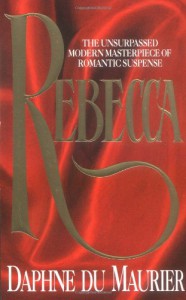 The last time I read Rebecca I was much closer in age to the second Mrs. de Winter than I am now. I was also a much less experienced reader. What interested me most about this read was the self-reflection it inspired: how much my opinions of the various characters had changed, and also how much more I appreciated du Maurier's writing skills. [return][return]Maxim de Winter has dropped substantial in my esteem, especially considering how clearly I could now see the parallels between the plots of Rebecca and Jane Eyre (Die, Rochester, die!!!). In fact, the Mobil Masterpiece Theatre adaptation ended with Maxim racing into the burning Manderley to rescue Mrs. Danvers (ie: Rebecca-by-proxy) only to be seriously injured. In the book, Mrs. Danvers is seen leaving the estate just before the fire is discovered, which to me is a much more satisfying ending. [return][return]Something I missed on previous readings of Rebecca, no doubt due to my youth, is that it's the story of a very unequal marriage. A man born to power, wealth and position and a woman so powerless she is never even named. But the very thing that give Maxim his power is also his downfall. It is because of Manderley that he accepted Rebecca's sociopathic behaviour and in the end it is a threat to Manderley (the idea that it would fall into the hands of Rebecca's child) that makes him take the final, fatal step. When the second Mrs. de Winter finally grows strong enough to stand beside her husband as something of an equal, Manderley, and Maxim's power, goes up in smoke. [return][return]The triumph of this book, however, is the point of view work. The choice of first person, besides being the only feasible choice to keep a character completely unnamed, also allows us to experience the mystery. Everyone in the story knows more than the narrator, and to step out of her point of view for a moment would have made the story very different indeed. Though the narration is coming from a point in time after all the event of the story ("Last night, I dreamt I went to Manderley again.") the narrator keeps us close to her former self, detailing each piece of emotion, each wayward fear, every physical sensation down to two drops of rain on the back of her hand. This close point of view work rarely lets up, and indeed contains some wonderful passages of steam-of-consciousness that should be held up as examples of How To Do It Without Sounding Like Joyce. [return][return]Some of the symbolism is perhaps a little heavy-handed for today's reader, such as Mrs. Danvers "skull face" and the storm that breaks as Jack Favell brings out his evidence against Maxim, but such are the changing tastes of literature. I'm sure most current critics would advise against starting a novel with a dream-sequence, but can you really imagine another opening line to Rebecca?
The last time I read Rebecca I was much closer in age to the second Mrs. de Winter than I am now. I was also a much less experienced reader. What interested me most about this read was the self-reflection it inspired: how much my opinions of the various characters had changed, and also how much more I appreciated du Maurier's writing skills. [return][return]Maxim de Winter has dropped substantial in my esteem, especially considering how clearly I could now see the parallels between the plots of Rebecca and Jane Eyre (Die, Rochester, die!!!). In fact, the Mobil Masterpiece Theatre adaptation ended with Maxim racing into the burning Manderley to rescue Mrs. Danvers (ie: Rebecca-by-proxy) only to be seriously injured. In the book, Mrs. Danvers is seen leaving the estate just before the fire is discovered, which to me is a much more satisfying ending. [return][return]Something I missed on previous readings of Rebecca, no doubt due to my youth, is that it's the story of a very unequal marriage. A man born to power, wealth and position and a woman so powerless she is never even named. But the very thing that give Maxim his power is also his downfall. It is because of Manderley that he accepted Rebecca's sociopathic behaviour and in the end it is a threat to Manderley (the idea that it would fall into the hands of Rebecca's child) that makes him take the final, fatal step. When the second Mrs. de Winter finally grows strong enough to stand beside her husband as something of an equal, Manderley, and Maxim's power, goes up in smoke. [return][return]The triumph of this book, however, is the point of view work. The choice of first person, besides being the only feasible choice to keep a character completely unnamed, also allows us to experience the mystery. Everyone in the story knows more than the narrator, and to step out of her point of view for a moment would have made the story very different indeed. Though the narration is coming from a point in time after all the event of the story ("Last night, I dreamt I went to Manderley again.") the narrator keeps us close to her former self, detailing each piece of emotion, each wayward fear, every physical sensation down to two drops of rain on the back of her hand. This close point of view work rarely lets up, and indeed contains some wonderful passages of steam-of-consciousness that should be held up as examples of How To Do It Without Sounding Like Joyce. [return][return]Some of the symbolism is perhaps a little heavy-handed for today's reader, such as Mrs. Danvers "skull face" and the storm that breaks as Jack Favell brings out his evidence against Maxim, but such are the changing tastes of literature. I'm sure most current critics would advise against starting a novel with a dream-sequence, but can you really imagine another opening line to Rebecca?
Death Comes to Pemberley
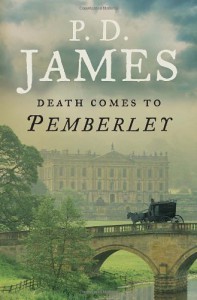 I've read enough Austen fanfic (good and bad, published and unpublished) that I'm no longer frightened by the idea of another. My new philosophy is that if another author can "ruin" Austen, I was never that big of a fan to begin with.That said, P.D. James's book is barely fanfic. Darcy and Lizzie figure in the plotline but do not have much effect on it. Their definitive character traits appear sparingly, if at all. The prose has all the pomp of Austen's era, but misses the sparkle of her wry and witty voice.What does make the book interesting, however, is that is forms a kind of treatise on the state of the British justice system in 1803. We watched the accused Wickham as he is shunted through the jails and courts, even as he decries his innocence. In this, the book kept my interest, but I would have been just as interested in a well-written essay on the topic. (Of course, I can't speak for other readers.)Death Comes to Pemberley is an interesting read, but if you need your Austen fix, I would recommend looking elsewhere.This review also appears at Boxes of Paper.
I've read enough Austen fanfic (good and bad, published and unpublished) that I'm no longer frightened by the idea of another. My new philosophy is that if another author can "ruin" Austen, I was never that big of a fan to begin with.That said, P.D. James's book is barely fanfic. Darcy and Lizzie figure in the plotline but do not have much effect on it. Their definitive character traits appear sparingly, if at all. The prose has all the pomp of Austen's era, but misses the sparkle of her wry and witty voice.What does make the book interesting, however, is that is forms a kind of treatise on the state of the British justice system in 1803. We watched the accused Wickham as he is shunted through the jails and courts, even as he decries his innocence. In this, the book kept my interest, but I would have been just as interested in a well-written essay on the topic. (Of course, I can't speak for other readers.)Death Comes to Pemberley is an interesting read, but if you need your Austen fix, I would recommend looking elsewhere.This review also appears at Boxes of Paper.
Miss Peregrine's Home for Peculiar Children (EXP)
 It was not the fact that the girl is levitating that first caught my eye. It was the old woman's face on the child's body.I love books that are open about their inspiration. In the case of Miss Peregrine's Home for Peculiar Children, the story is built around a collection of vernacular photographs from the collections of the author and some of his friends/acquaintances. All of the photographs included have a disquieting effect on the reader, from the one of a man asleep with a gun in his hand, to the one of a man's shadow cast in front of a child playing.Jacob's grandfather introduces him to the first of the pictures, claiming that for all their amateur look, the "peculiar children" they depict are real. As a child, Jacob believes in them, along with his grandfather's stories of fighting monsters and of the home where he briefly lived as a reprieve, but eventually Jacob accepts the family's explanation that the stories are a psychological construct. Jacob's grandfather, alone out of his family, escaped from WWII Poland. The "monsters" are his way of compartmentalizing both the Nazis that killed his family and his own survivor's guilt.Or are they? One night, Jacob's grandfather is brutally killed, and Jacob sees something, just a glimpse, but it's enough to bring back all of his doubts. With his therapist's encouragement, Jacob decides that the best way to get some answers is to travel to the island and visit the ruin of the home that sheltered his grandfather.The photographs are fascinating, but I think the story woven around them might have been even stronger with a few more images, and especially with a few unexplained ones. Also, the descriptions tended to precede the photographs themselves, which I think took away some of their power.Readers who, like me, were fascinated in the beginning with the life of Jacob's grandfather, might find a similar experience in Briar Rose by Jane Yolen.
It was not the fact that the girl is levitating that first caught my eye. It was the old woman's face on the child's body.I love books that are open about their inspiration. In the case of Miss Peregrine's Home for Peculiar Children, the story is built around a collection of vernacular photographs from the collections of the author and some of his friends/acquaintances. All of the photographs included have a disquieting effect on the reader, from the one of a man asleep with a gun in his hand, to the one of a man's shadow cast in front of a child playing.Jacob's grandfather introduces him to the first of the pictures, claiming that for all their amateur look, the "peculiar children" they depict are real. As a child, Jacob believes in them, along with his grandfather's stories of fighting monsters and of the home where he briefly lived as a reprieve, but eventually Jacob accepts the family's explanation that the stories are a psychological construct. Jacob's grandfather, alone out of his family, escaped from WWII Poland. The "monsters" are his way of compartmentalizing both the Nazis that killed his family and his own survivor's guilt.Or are they? One night, Jacob's grandfather is brutally killed, and Jacob sees something, just a glimpse, but it's enough to bring back all of his doubts. With his therapist's encouragement, Jacob decides that the best way to get some answers is to travel to the island and visit the ruin of the home that sheltered his grandfather.The photographs are fascinating, but I think the story woven around them might have been even stronger with a few more images, and especially with a few unexplained ones. Also, the descriptions tended to precede the photographs themselves, which I think took away some of their power.Readers who, like me, were fascinated in the beginning with the life of Jacob's grandfather, might find a similar experience in Briar Rose by Jane Yolen.
The Chocolate War
 Like Dead Poets Society, only without the great teacher and with a lot more masturbation.Actually, it's more Dead Poets Society meets Lord of the Flies.Selling chocolates is a yearly tradition at Trinity, a private Catholic boys' school. This year, the pressure is on, with twice as many boxes selling at double last year's price. School spirit is invoked. Everyone has to do their part. But when Brother Leon calls the role, asking each boy if he will participate (something that is supposed to be a formality), Jerry Renault says "No."Despite the nearly forty years since this book was published, The Chocolate War still reads as contemporary, with only one or two small things to date it.Though the book does carry an anti-bullying message, it delivers it in a devastating and dismal manner, leaving the reader bewildered and raw at the end.Definitely a book deservedly remembered.This review also appears at Boxes of Paper.
Like Dead Poets Society, only without the great teacher and with a lot more masturbation.Actually, it's more Dead Poets Society meets Lord of the Flies.Selling chocolates is a yearly tradition at Trinity, a private Catholic boys' school. This year, the pressure is on, with twice as many boxes selling at double last year's price. School spirit is invoked. Everyone has to do their part. But when Brother Leon calls the role, asking each boy if he will participate (something that is supposed to be a formality), Jerry Renault says "No."Despite the nearly forty years since this book was published, The Chocolate War still reads as contemporary, with only one or two small things to date it.Though the book does carry an anti-bullying message, it delivers it in a devastating and dismal manner, leaving the reader bewildered and raw at the end.Definitely a book deservedly remembered.This review also appears at Boxes of Paper.
The Lemonade War (The Lemonade War Series)
 Often when books are instructive, authors are a bit too heavy-handed, allowing the lesson to weigh down the story.Such is not the case with The Lemonade War. It's an entertaining introduction to both the mechanics of running a business and to the fact that not everyone sees the world in the same way.Evan's younger sister Jessie is wicked-book-smart. So smart, she's being moved up a grade -- into Evan's class. As much as Evan likes his sister, he's terrified that having her in his class will show up his own poor skills.In the last days before school resumes, Evan's worry leads to arguments with his sister, who doesn't have the people-skills to understand why he's upset. Soon, the siblings are in an all out war. Whoever makes the most money selling lemonade wins. Evan's people-smarts against Jessie's book-smarts.The chapters alternate between Evan's and Jessie's point of view, and the difference between the voices is exceedingly well-done. Occasionally, the same events are described by both kids, and the reader just wants to shake them into reconciliation. By the end of the book, which Davies both wraps up wonderfully and sets up for the sequel, The Lemonade Crime, the reader loves both Evan and Jesse and definitely doesn't want to let them go.This review also appears at Boxes of Paper.
Often when books are instructive, authors are a bit too heavy-handed, allowing the lesson to weigh down the story.Such is not the case with The Lemonade War. It's an entertaining introduction to both the mechanics of running a business and to the fact that not everyone sees the world in the same way.Evan's younger sister Jessie is wicked-book-smart. So smart, she's being moved up a grade -- into Evan's class. As much as Evan likes his sister, he's terrified that having her in his class will show up his own poor skills.In the last days before school resumes, Evan's worry leads to arguments with his sister, who doesn't have the people-skills to understand why he's upset. Soon, the siblings are in an all out war. Whoever makes the most money selling lemonade wins. Evan's people-smarts against Jessie's book-smarts.The chapters alternate between Evan's and Jessie's point of view, and the difference between the voices is exceedingly well-done. Occasionally, the same events are described by both kids, and the reader just wants to shake them into reconciliation. By the end of the book, which Davies both wraps up wonderfully and sets up for the sequel, The Lemonade Crime, the reader loves both Evan and Jesse and definitely doesn't want to let them go.This review also appears at Boxes of Paper.
The Search for WondLa
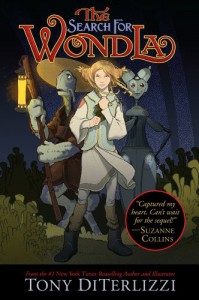 The disadvantage of being an adult who loves children's literature is that I perhaps analyze things too much. In searching for a defence, I remember all those books I read several times as a child and then re-read as an adult, only to find new layers for the more experienced reader.Because I'm now an adult, I'm reading those layers in my first experience of a book, the disadvantage being, I sometimes don't simply accept the story for what it is.The opening of The Search for WondLa impressed me. It's an imaginative concept and I quickly grew to like Eva Nine, the protagonist, who lives in a hermetically sealed Sanctuary with Muthr (Multi Utility Task Help Robot). Eva is in training to go up to the surface, but when her Sanctuary is attacked, she must go up early. And what she finds makes much of her training useless. It doesn't even look like the same planet.Trees walk. Creatures that should be microscopic are the size of elephants. There are even stranger creatures, speaking languages that Eva cannot understand, who seem to be hunting her.The book is heavily illustrated by DiTerlizzi, breaking up what might otherwise be a daunting tome for the eight-to-twelves that are its audience. The pictures also are the one nod I found to adult readers. If the style of them looks familiar, that's not by accident.The Search for WondLa is imaginative and fun, but my adult brain kept screaming at the parts that didn't fit together. The world operates by DiTerzzi's laws, and because I don't know them, I only became frustrated. The reveal of WondLa at the end of the book employed a cheat I suspected from the first that DiTerlizzi would use, and that was what bumped it down to two stars.That said, I would still recommend this book to young readers who don't have my hangups, but I will likely leave it up to them if they want to take a chance on the second volume, A Hero for WondLa.This review also appears at
The disadvantage of being an adult who loves children's literature is that I perhaps analyze things too much. In searching for a defence, I remember all those books I read several times as a child and then re-read as an adult, only to find new layers for the more experienced reader.Because I'm now an adult, I'm reading those layers in my first experience of a book, the disadvantage being, I sometimes don't simply accept the story for what it is.The opening of The Search for WondLa impressed me. It's an imaginative concept and I quickly grew to like Eva Nine, the protagonist, who lives in a hermetically sealed Sanctuary with Muthr (Multi Utility Task Help Robot). Eva is in training to go up to the surface, but when her Sanctuary is attacked, she must go up early. And what she finds makes much of her training useless. It doesn't even look like the same planet.Trees walk. Creatures that should be microscopic are the size of elephants. There are even stranger creatures, speaking languages that Eva cannot understand, who seem to be hunting her.The book is heavily illustrated by DiTerlizzi, breaking up what might otherwise be a daunting tome for the eight-to-twelves that are its audience. The pictures also are the one nod I found to adult readers. If the style of them looks familiar, that's not by accident.The Search for WondLa is imaginative and fun, but my adult brain kept screaming at the parts that didn't fit together. The world operates by DiTerzzi's laws, and because I don't know them, I only became frustrated. The reveal of WondLa at the end of the book employed a cheat I suspected from the first that DiTerlizzi would use, and that was what bumped it down to two stars.That said, I would still recommend this book to young readers who don't have my hangups, but I will likely leave it up to them if they want to take a chance on the second volume, A Hero for WondLa.This review also appears at
The Science of Evil: On Empathy and the Origins of Cruelty
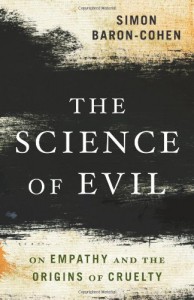 This is my share of a dual review posted at Boxes of Paper.Like shelterdowns, the title of this book caught my eye, but in my case it was the term empathy. I've become interested in empathy since discovering the work of Dr. Brené Brown, who researches the connection between wholehearted living, empathy, vulnerability and shame.One of Dr. Brown's catchphrase/explanations is "Shame is 'I'm bad"; guilt is 'I did something bad." This is echoed in The Science of Evil when the Baron-Cohen quotes Peter Lipton:If we treat another person as essentially bad, we dehumanize him or her. If we take the view that every human being has some good in them, even if it is only 0.1 percent of their makeup, then by focusing on their good part, we humanize them. By acknowledging and attended to and rewarding their good part, we allow it to grow, like a flower in a desert.I agree with pretty much everything in shelterdowns review, so I won't repeat it, but there was one passage that caught my eye which she doesn't mention. Baron-Cohen puts forth the idea that a factor in the development of anorexia may be an inhibition in the brain's ability to feel empathy for the self. Though he does not mention it, my mind immediately began to wonder about the brain chemistry of cutters and others who practice other forms of self-harm.One only has to turn on the news to see that we are living in a world that needs more empathy, for both each other and for ourselves. I welcome more books like this one, and like Dr. Brown's. It's time we started to speak empathy aloud. There are no more reassuring words in the world, sometimes, than these:"I understand what that's like."
This is my share of a dual review posted at Boxes of Paper.Like shelterdowns, the title of this book caught my eye, but in my case it was the term empathy. I've become interested in empathy since discovering the work of Dr. Brené Brown, who researches the connection between wholehearted living, empathy, vulnerability and shame.One of Dr. Brown's catchphrase/explanations is "Shame is 'I'm bad"; guilt is 'I did something bad." This is echoed in The Science of Evil when the Baron-Cohen quotes Peter Lipton:If we treat another person as essentially bad, we dehumanize him or her. If we take the view that every human being has some good in them, even if it is only 0.1 percent of their makeup, then by focusing on their good part, we humanize them. By acknowledging and attended to and rewarding their good part, we allow it to grow, like a flower in a desert.I agree with pretty much everything in shelterdowns review, so I won't repeat it, but there was one passage that caught my eye which she doesn't mention. Baron-Cohen puts forth the idea that a factor in the development of anorexia may be an inhibition in the brain's ability to feel empathy for the self. Though he does not mention it, my mind immediately began to wonder about the brain chemistry of cutters and others who practice other forms of self-harm.One only has to turn on the news to see that we are living in a world that needs more empathy, for both each other and for ourselves. I welcome more books like this one, and like Dr. Brown's. It's time we started to speak empathy aloud. There are no more reassuring words in the world, sometimes, than these:"I understand what that's like."
